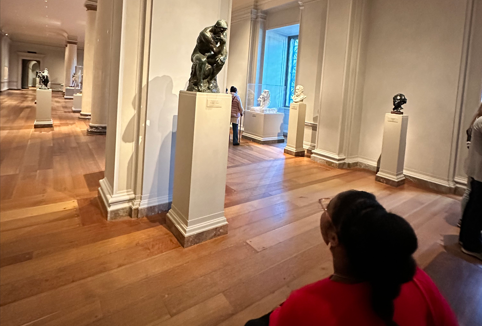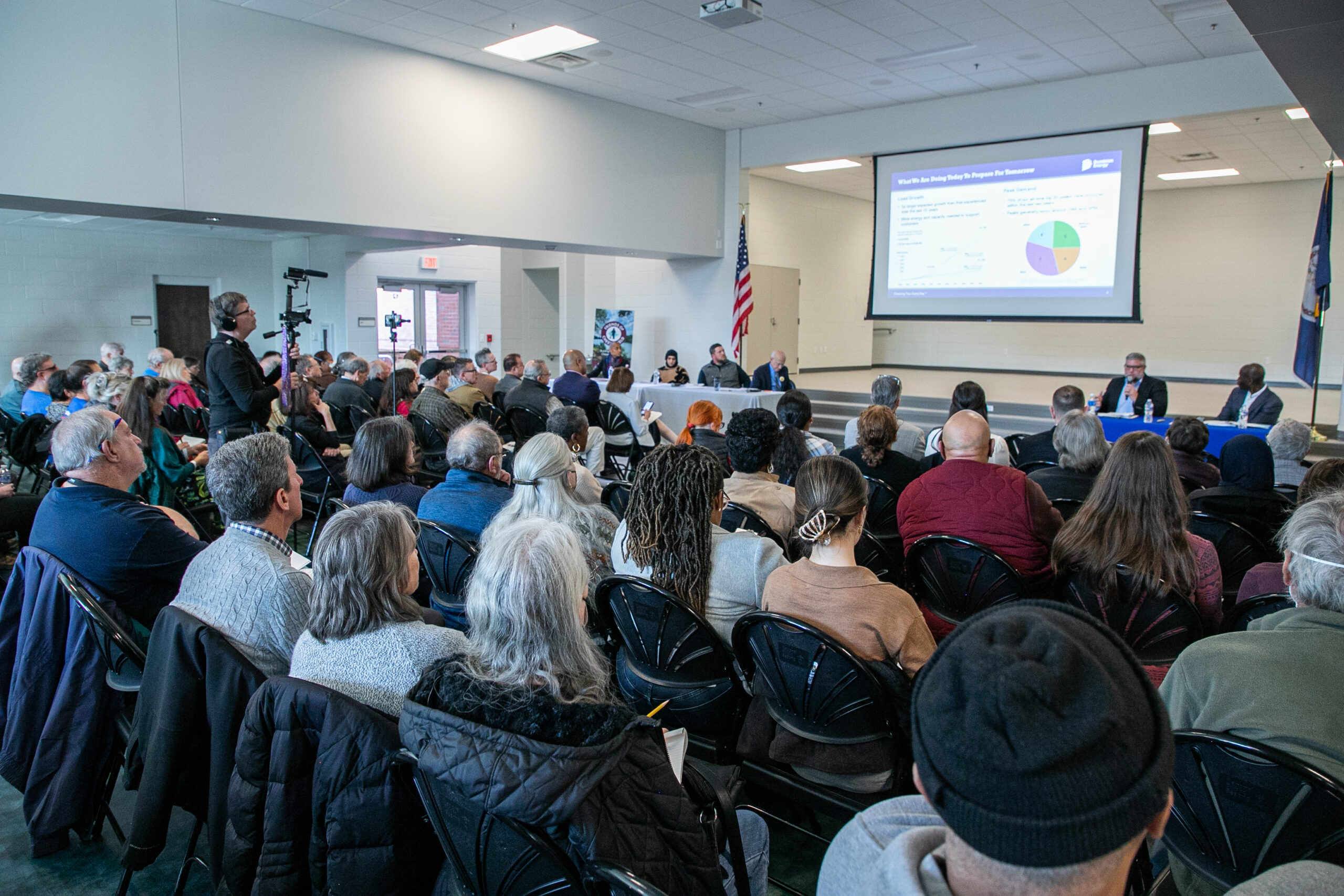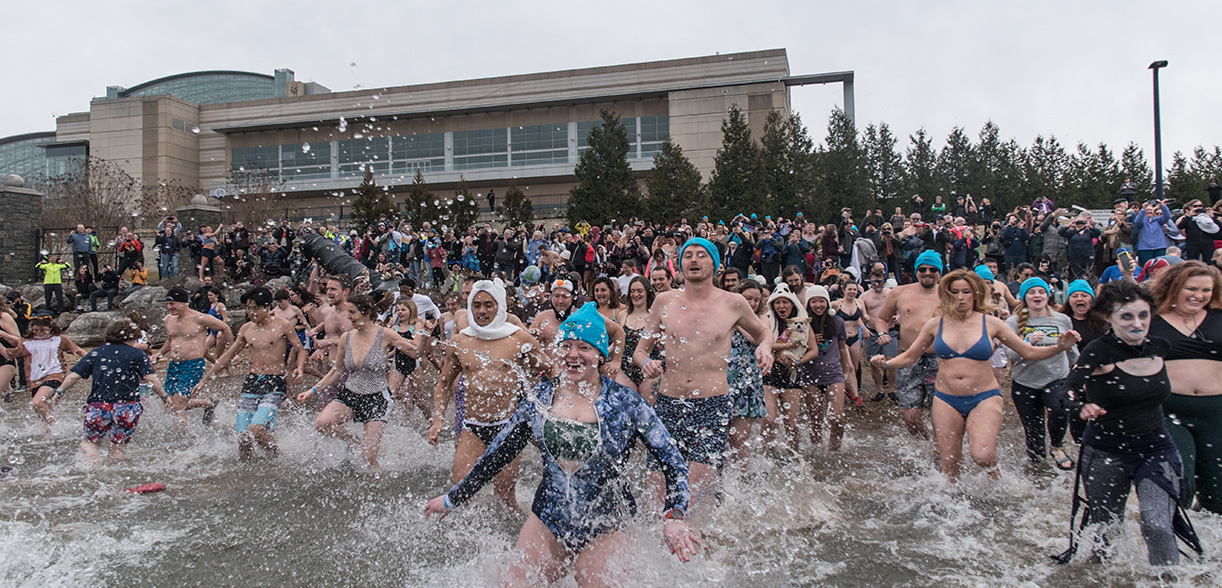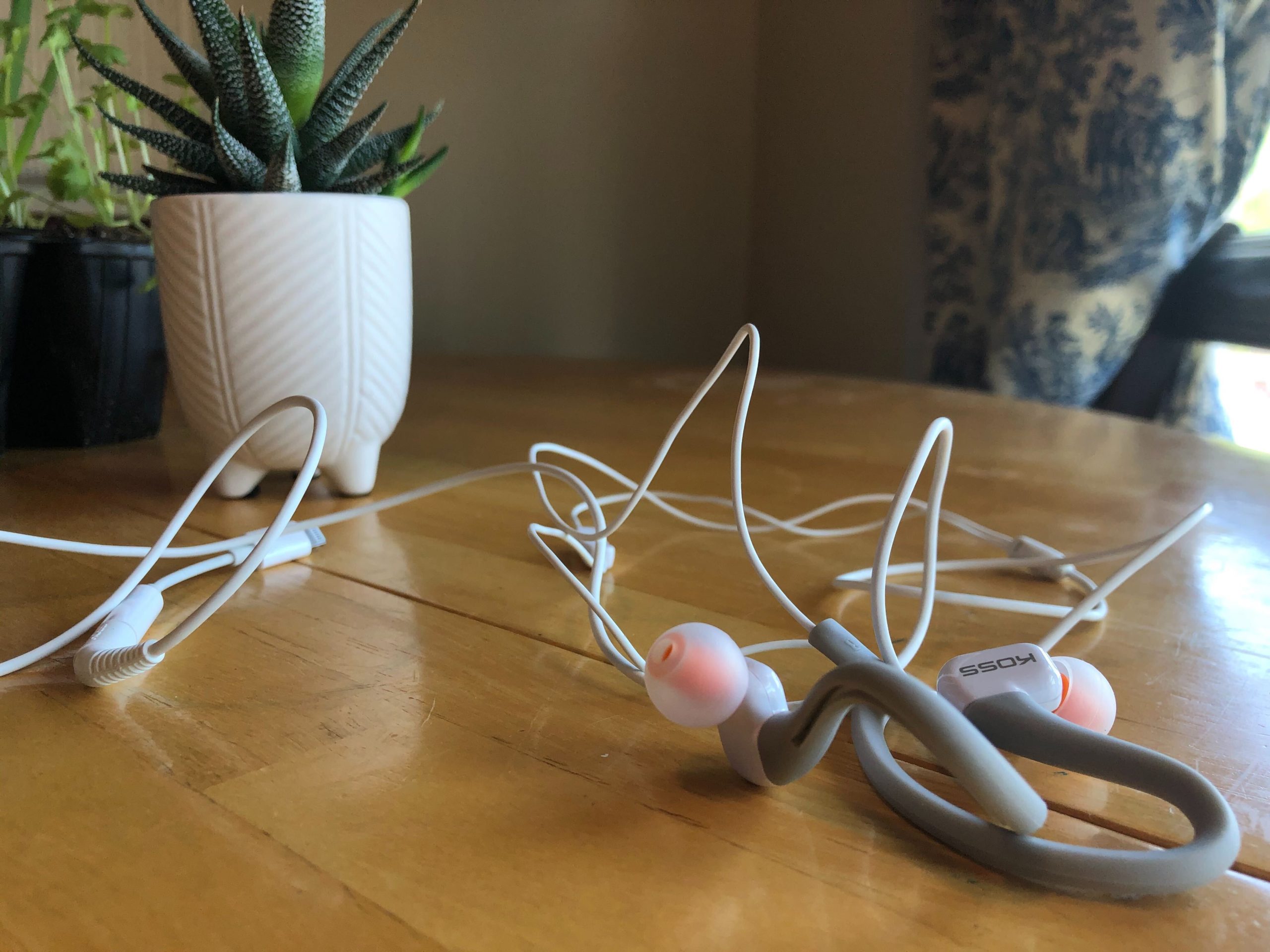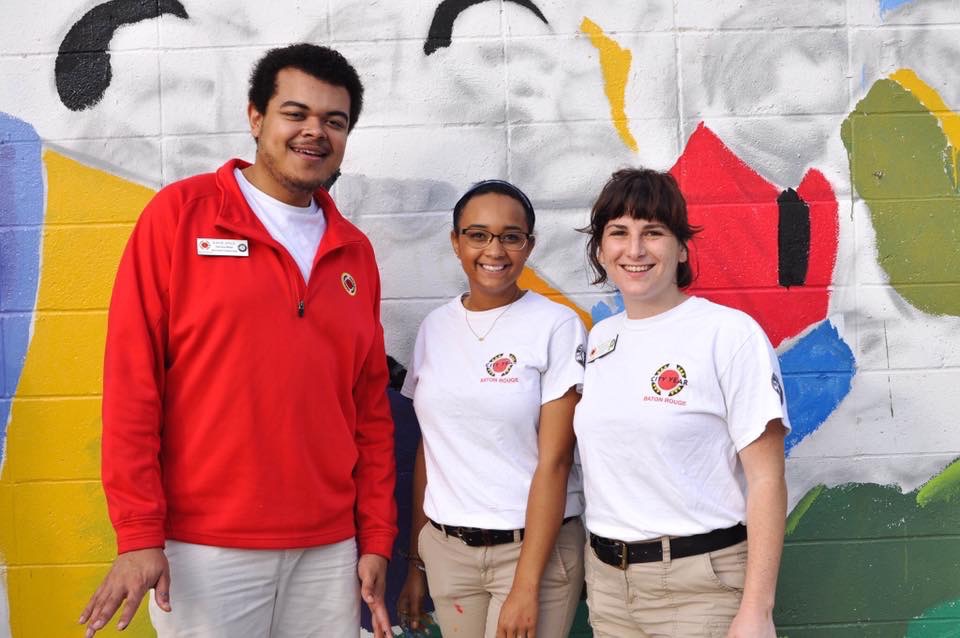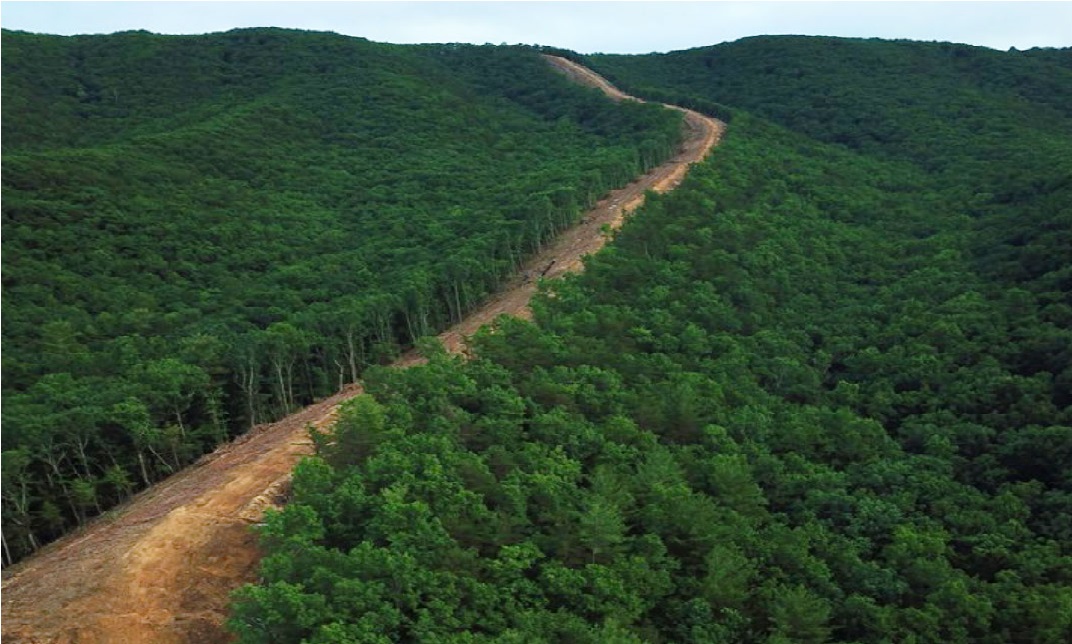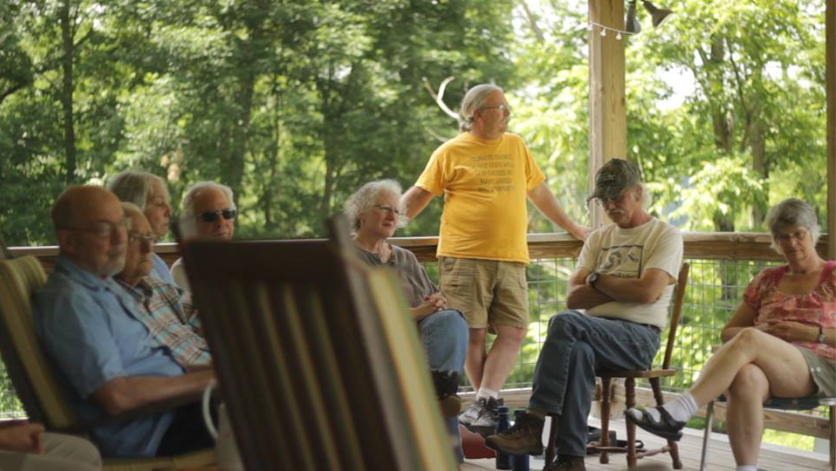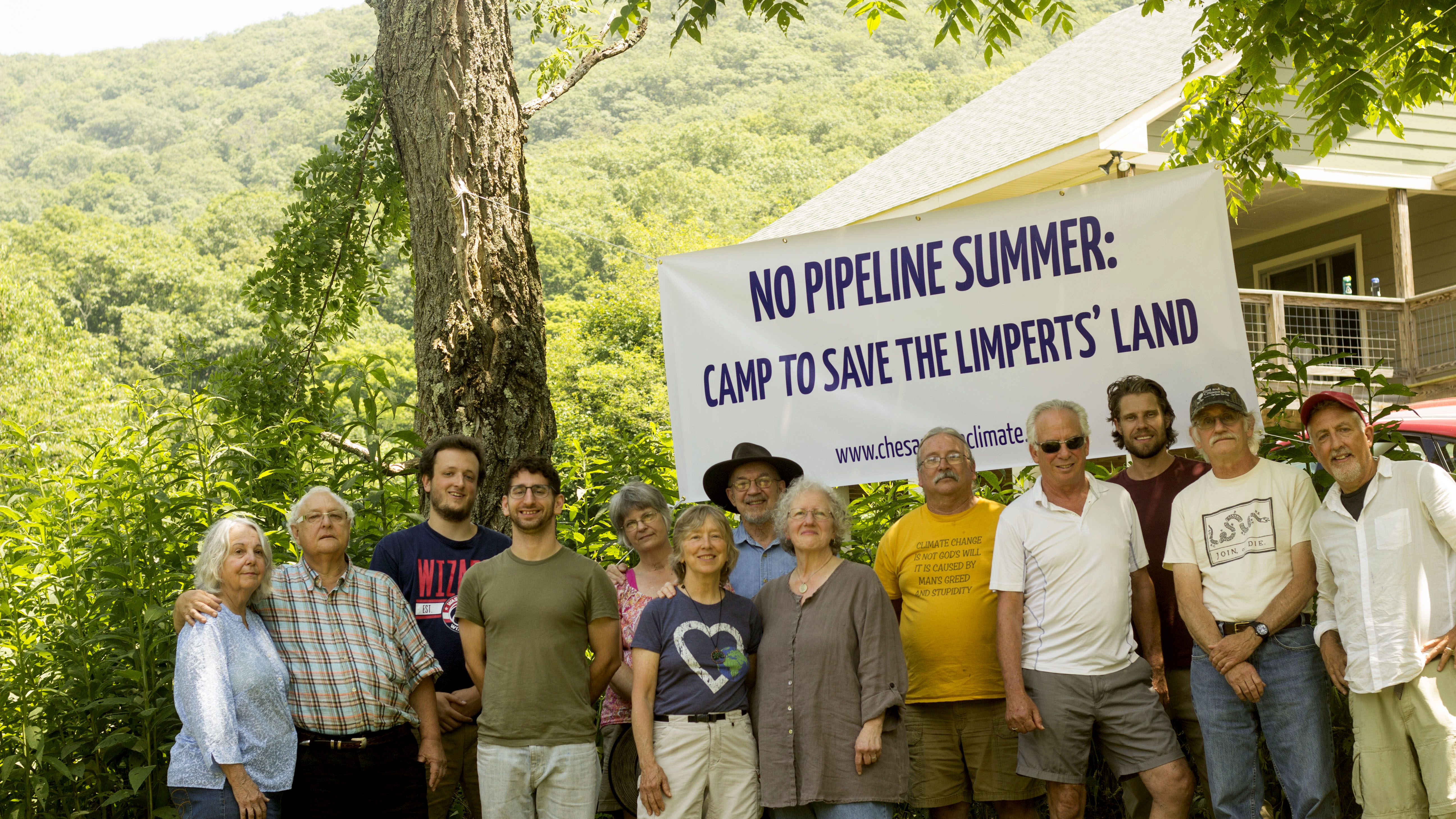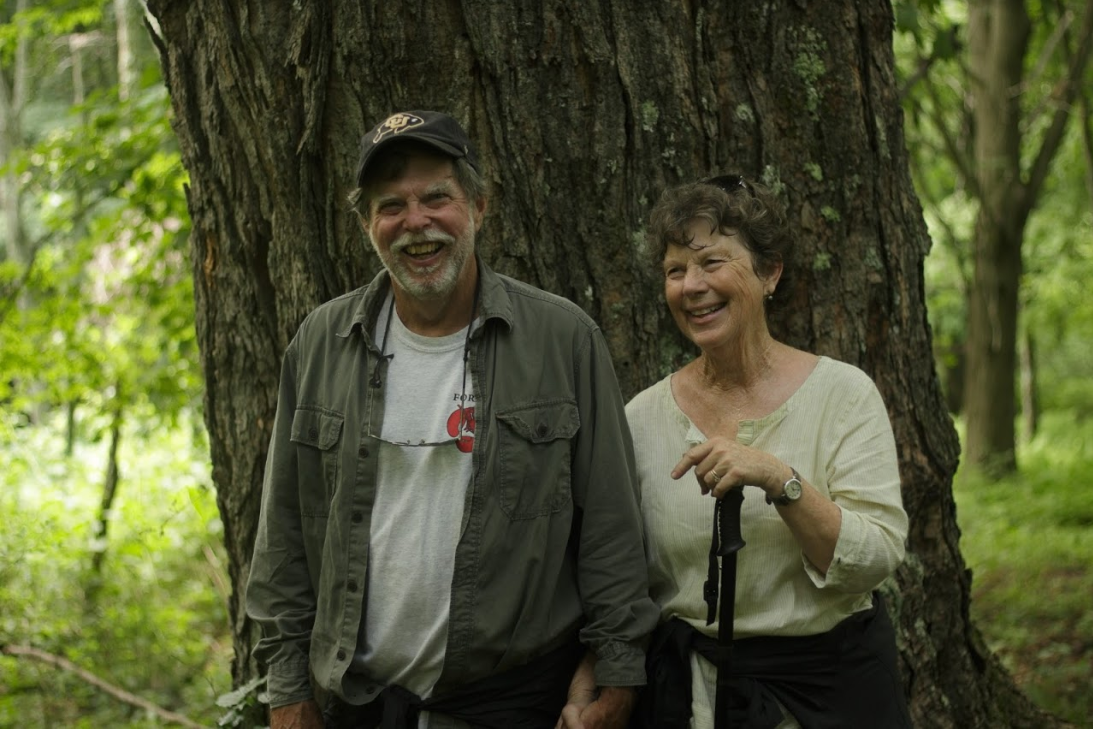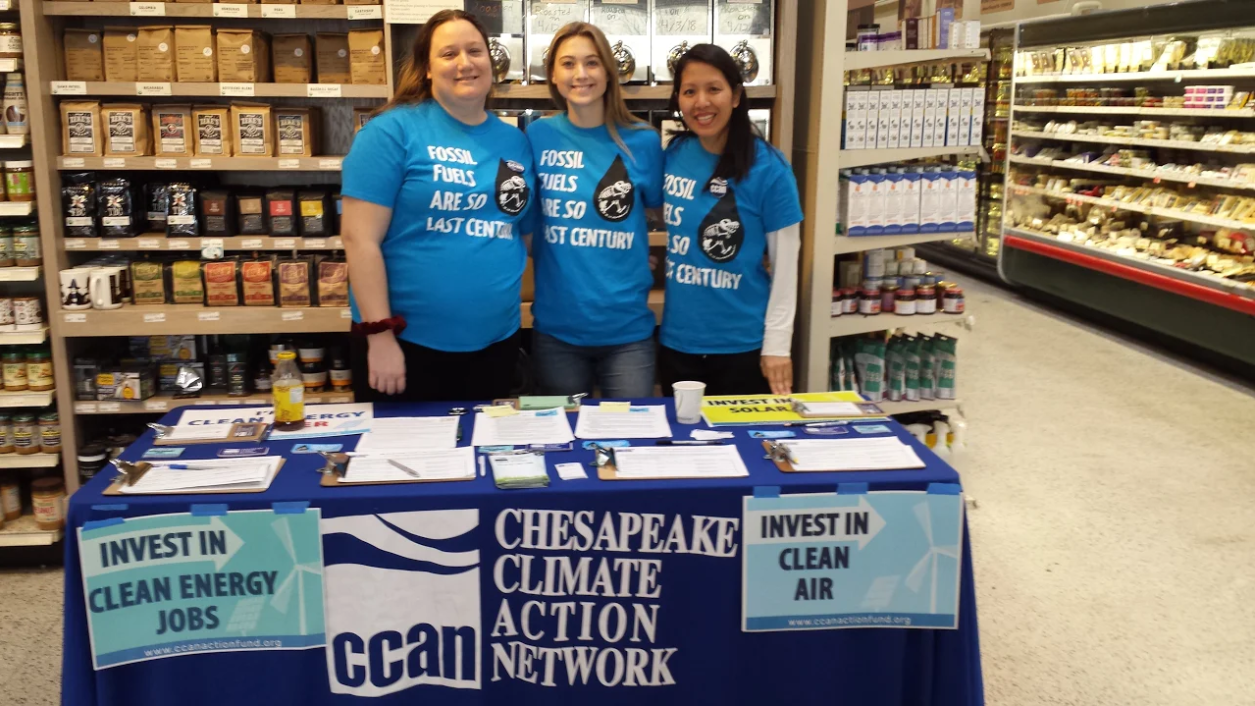One of the main things that I want to do with my career is to help communities mitigate and adapt to climate change. I think it is incredibly important to focus on a local level rather than just federally, and CCAN is intentional about building a broad coalition with a lot of voices!
Continue readingCentral Virginia Lawmakers Say Chesterfield Gas Plant Not in Line with State Law
This morning, nine legislators from the central Virginia state delegation issued a statement in opposition to Dominion Energy’s proposed Chesterfield gas plant.
Continue readingCCAN Polar Bear Plunge for the Climate Sets Record for Biggest Crowd Taking A Dip to “Keep Winter Cold”
After the hottest year on record, over 340 climate activists from across the DMV took the biggest plunge yet, raising awareness and funds to fight climate change.
Continue readingClimate podcasts to rock your quarantine
Hi, my name is Lauren and I’m an extrovert.
As the Hampton Roads Organizer for CCAN, this works in my favor. I never met a stranger I didn’t like to chat with and I roll through my speed dial list without advanced notice just to talk (my friends like it, I swear). So cold-calling people to ask them to sign a CCAN petition to resist pipelines to or attend a rally to pass the Virginia Clean Economy Act? Gotcha covered.
This trait makes me an expert on today’s topic.
Podcasts: All day, every day
When I’ve run out of people to talk to, I turn to my library of podcasts; because even during my “quiet” time, I need some sort of conversation running in the background to keep me from feeling antsy or lonely. Although I’m working full-time from home, plus full-time 4 year old duty, my daily opportunities for fitting in a podcast are plenty. I prep for the day with a news brief (rec: The Daily) as I brush my teeth and swap my night pajamas for my day pajamas. A self-care show (rec: Forever35) keeps me positive during email time for me & nap time for Coulson. And a pop culture or investigative series (rec: Armchair Expert or Ear Hustle) staves off sleep during project time on the couch once the house is quiet.
But today is not about those other podcasts — stop trying to distract me, people. Today is about the meat sweet potatoes of my podcast diet (vegetarians hollaaaa).
Let’s get down to business
(to defeat the Huns….anyone?)
It’s 6pm. Michael arrives home from work. I give him the parent highlights (yes, Coulson had dinner; no, he didn’t nap; yes, he’s still wearing his pajamas), pass the baton, and I am GONE. The local, deserted college campus is 5 minutes from our house and I have one hour to get my steps, get some air, and listen to…..my climate podcast for the day!!!
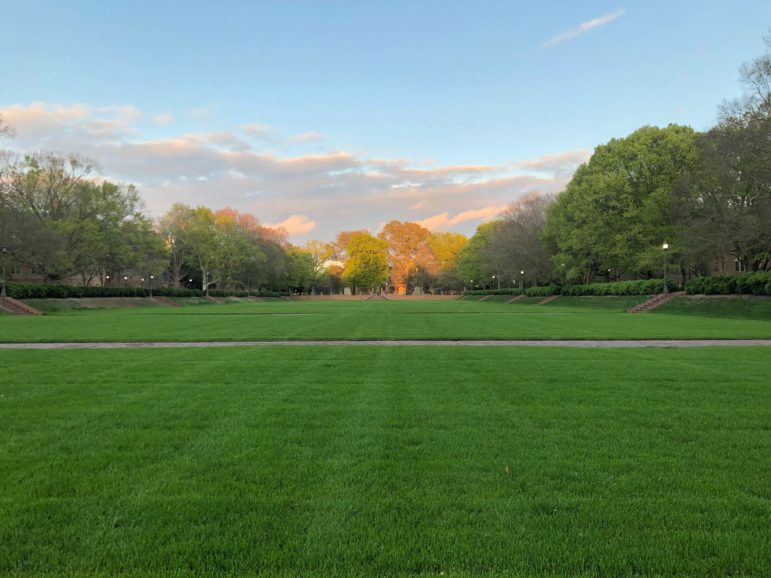
Now, you might be thinking, “Lauren, you spend all day thinking about climate change which is not the most relaxing topic anyway….you want to spend your free time listening to it, too??” An excellent question, thank you for asking. And the answer is a simple, “yep.”
I began to work for CCAN precisely because climate change was what I spent my free time learning and thinking about. Organizing for CCAN allows me to focus professionally on an issue that I was previously fitting in where I could. If anything, being a full-time climate activist means I have to step up my game even more to be conversant on the latest news, science, and community stories.
Before COVID-19, I had way more time to devote to this audio learning; my work covers all of Hampton Roads so I spent hours weekly in the car binging through episodes. Now, I squeeze in listening time during my nightly walk and anywhere else I can. However, my shortage of time has not equated to a shortage of options. There are so many great climate podcasts & episodes and it’s time I share my carefully curated list with the world (jk, they’re all great and I download everything).
There are lots of great lists of climate podcasts out there and you will likely find some overlap between my list & those. But who doesn’t need another list, right? So here are my favorite podcasts that are centered on climate change.
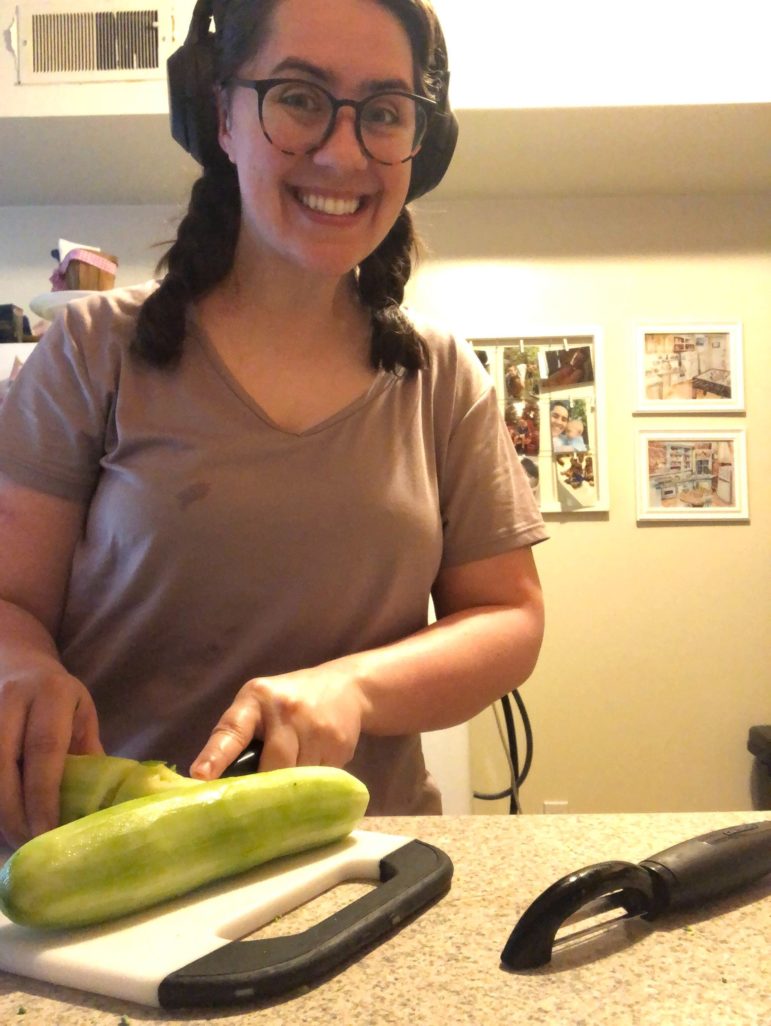
Climate Podcasts
If you want a super personal recommendation from the list above, I have a special place in my heart for Mothers of Invention. This show focuses on women-led climate solutions and is hosted by Mary Robinson (former President of Ireland, UN High Commissioner for Human Rights, and global climate activist) and Irish comedian, Maeve Higgins. Mary Robinson’s book, Climate Justice, inspired me to be an organizer!
Next, let’s talk about a less-covered area: individual climate episodes within non-climate specific podcasts. I think this is the most important part of the list. For many people, subscribing & listening routinely to a podcast is a bit of a commitment, never mind catching up on the entire back catalog. If that sounds daunting, the individual climate episodes below are a perfect starting place! Dip your toe in the water with an episode or two and you may find your new favorite show.
Climate Episodes (podcast name followed by episode name in italics)

Life Kit, How To Talk To Kids About Climate Change
Ologies with Alie Ward, Phenology Episode
Powering the Movement, Saving The World’s Fastest Sinking City
Ted Talks Daily, Climate Change Will Displace Millions
Ted Talks Daily, When The Tides Keep Getting Higher
There Goes the Neighborhood, Season 3, Episode 1-3
I assume I don’t need to convince you to listen to anything with Bill Nye the Science Guy so I’ll save my muscle to encourage you towards the There Goes the Neighborhood episodes. They focus on climate-caused gentrification in Miami and were the starting point of my current sea-level rise research project. Did you know that Hampton Roads is outranked only by New Orleans in terms of sea level rise risk? If you didn’t know, these episodes are for you. If you did know, these episodes are still for you, trust.
Technicalities
Let’s check in on some technical details before I send you off on a date with your chosen episode.
First, if you’re new to podcasts and you’re not sure how to find or listen to anything I’ve recommended above, you’re not alone. There are many “how to” articles that are easy to follow so rather than recreate the wheel, I would recommend “How to listen to podcasts: everything you need to know” by The Guardian or “The Beginner’s Guide to Podcasts” by The Wired. Alternatively, email me and we’ll set up a time to hop on the phone and walk through it together!
Second, many podcasts can be listened to on a web browser so a smart phone is not a requirement (this is addressed in the how-to guides above).
Third & finally, a lot of podcasts are creating transcripts to make sure their content is accessible to all. I make note of my favorite podcasts that are prioritizing this and I would love to hear any of your favorites that are doing the same.
It’s Go Time
You subscribe to CCAN’s emails, sign our petitions, follow us on Facebook, and read our blog (obviously). What can you do next to connect with CCAN and support climate action? The answer is this!! Fill your ears with one of our climate podcast recommendations and connect with climate activism in a new, easy way. Share what you learn over dinner, text an episode to a friend, or find a listener group online. Podcasts can be your constant companion throughout these tumultuous times and what subject integrates more importantly with all aspects of life than climate change? Send me an email or connect with us on social media to share your own podcast favorites or give a review of one of the recommendations above.
Happy listening!
Meet a CCANer: Hannah Laub
Hannah Laub is CCAN’s Virginia Grassroots Coordinator. Here’s her story.
Tell us a little bit about yourself!
Hi there! I was born in raised in Charlottesville, Virginia. I left VA for the first time when I went to Kenyon College in Ohio, where I studied Sociology and Studio Art. After college, I did two years of Americorps – first in Baton Rouge, Louisiana, and then in Seattle, Washington. About a year ago, I came back to Virginia and am happy to be back in the place I call home.
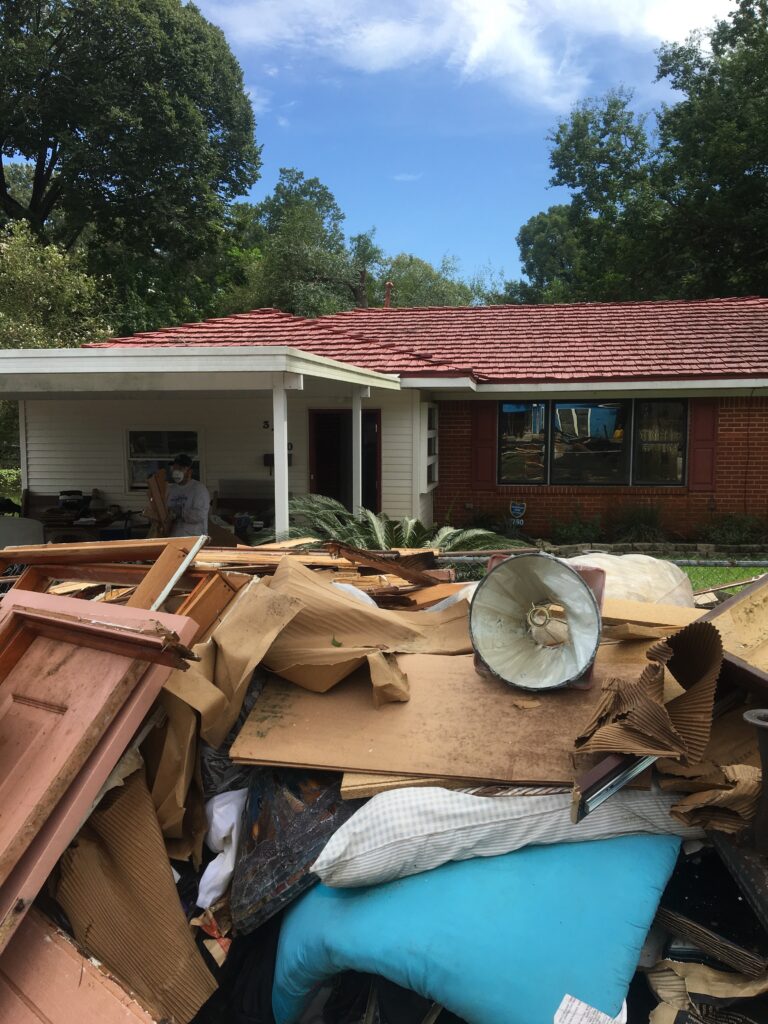
What woke you up to the climate crisis?
I went to Baton Rouge in 2016, when Louisiana experienced unprecedented flooding. I worked in a middle school, and our students were out for a week because the flooding caused destruction throughout the city. People lost their homes, businesses, and cars. Some had relocated to Baton Rouge from New Orleans after Hurricane Katrina, only to face the impact of climate change all over again. I spent that week gutting out people’s homes and working at donation centers, and even when students were back at school, the flood’s devastation lingered. It was shocking to see the impact three days of rain had on an entire community, and specifically how it impacted my students’ chances to have a happy, healthy school year.
What impacts of climate change currently hit home to you?
For me, the way climate change impacts public health really hits home. The air we breathe and the water we drink have a real impact on our health, and low-income communities are hit the hardest with these problems.
What brought you to CCAN?
I love CCAN’s concentration on justice and their belief in the power of grassroots resistance.
What has inspired you most working with CCAN?
The people! It really gives me hope to see the way CCANers advocate for our communities and the meaningful connections they make.
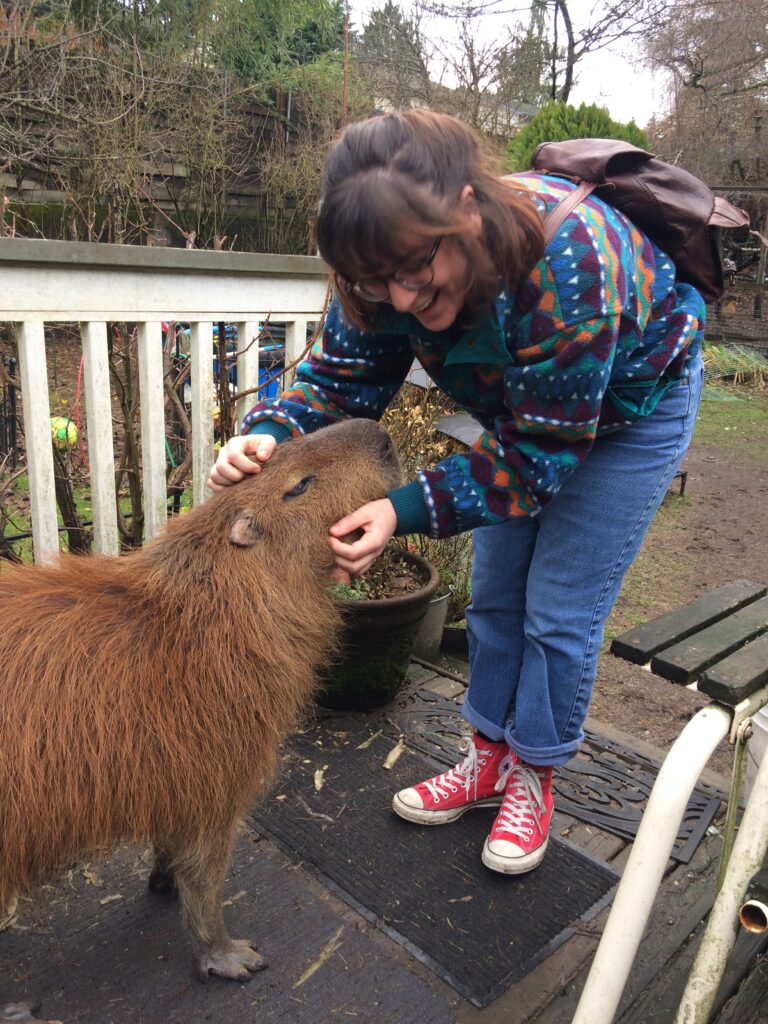
What have you contributed to bringing about a clean energy revolution that youare most proud of?
I just joined CCAN, so this answer will evolve. But for my previous job, I registered high school students to vote and helped them conduct get out the vote campaigns in their schools. So many of the students I worked with passionately cared about climate change. (That was truly the #1 issue students consistently brought up!) I’m hoping that by getting them more civically engaged, they will become lifetime advocates for climate justice.
What do you hope to see happen in terms of climate in the next year?
I hope that the pipelines continue to meet resistance and eventually stop construction. I also hope VA comes closer to adopting a clean energy policy, because we could be doing a lot better.
What do you like to do when you’re not working on climate change?
I love all things outdoors – hiking, swimming, just hanging out outside! I also try to stay active and make time to be creative by watercoloring and doing embroidery. I love spending time with friends and family, but my true love is eating.
Who would you high five?
Edward Scissorhands

New Lawsuit Launched Against Mountain Valley Pipeline
RICHMOND, Va. — Conservation groups today launched a lawsuit challenging the U.S. Fish and Wildlife Service’s approval of the Mountain Valley Pipeline (MVP). The petition for review of the project was filed with the Fourth Circuit Court of Appeals in Richmond.
The Fish and Wildlife Service, which administers the Endangered Species Act, issued an opinion that allowed the pipeline to move forward — despite its serious threats to endangered species. The agency failed to accurately measure the pipeline’s impacts on endangered wildlife like the iconic Roanoke logperch and failed to set limits for how many threatened and endangered bats can be harmed or killed.
The lawsuit seeks to vacate the Service’s decision and force the agency to re-evaluate the project’s impact. The groups argue that construction on the already-foundering pipeline should stop until that process is complete.
Today, the groups also sent a letter to the agency requesting that it stay the biological opinion and incidental take statement pending court review. The species at issue include the Roanoke logperch, Indiana bat and Northern long-eared bat. The suit was filed by the Sierra Club on behalf of Wild Virginia, Appalachian Voices, Preserve Bent Mountain/BREDL, Defenders of Wildlife, Center for Biological Diversity, and Chesapeake Climate Action Network.
Additionally, MVP does not have Clean Water Act authorization to cross streams and wetlands from the Army Corps, and does not have necessary U.S. Forest Service and Bureau of Land Management authorizations.
In response, Sierra Club Staff Attorney Elly Benson released the following statement:
“The fracked gas Mountain Valley Pipeline puts several endangered species in harm’s way, while serving only to line the pockets of polluting corporations. MVP has proven it can’t build this unnecessary pipeline without devastating streams and rivers, as well as the forest habitats of Appalachia. The public should be able to trust that the U.S. Fish and Wildlife Service is making protection of endangered species its highest priority, but it fell short of that obligation here.”
David Sligh, Conservation Director for Wild Virginia stated:
“The U.S. Fish and Wildlife Service, like numerous other government agencies tasked with protecting the public and our resources, failed to do its job. Citizens cannot and will not accept actions that endanger the future of some of our rarest and most precious wildlife species. This destructive pipeline has already caused great damage to the environment and the public and it must be stopped before that damage gets worse.”
Roberta Bondurant, Preserve Bent Mountain/BREDL, said:
“Our mountain communities continue to witness MVP ravage the forest, field, stream and wetland sanctuaries of species that have supposedly been protected by federal law. We ask USFWS and the courts to do no more—and no less—than uphold that law through a critical review of the Biological Opinion. At best, the writers of that document ignored evidence of MVP construction as a threat to species survival—survival which will ultimately implicate our own.”
Anne Havemann, General Counsel for the Chesapeake Climate Action Network, stated:
“The U.S. Fish and Wildlife Service has proven its carelessness in forcing through a permit for the similarly destructive Atlantic Coast Pipeline. We have seen this same carelessness in the Service’s permit for the Mountain Valley Pipeline. This pipeline has already wreaked havoc on the landscape; it must not be allowed to continue to jeopardize the existence of our invaluable endangered species.”
Jared Margolis, Center for Biological Diversity senior attorney, said:
“This pipeline is a major threat to the Roanoke River system and the people and imperiled species that rely on it. Regulators can’t keep shrugging off the environmental harms of pipeline projects. We need to stop destroying habitats and waterways for fossil fuels that are driving the climate catastrophe.”
Jason Rylander, Senior Endangered Species Counsel for Defenders of Wildlife, said:
“The Mountain Valley Pipeline poses an enormous threat to the fish, wildlife, forests, and people in its path. The Trump administration and the U.S. Fish and Wildlife Service fast-tracked this project and failed to properly evaluate its impact on imperiled species. The Service needs to reconsider its biological opinion and further construction of this environmentally destructive project should cease before iconic species and landscapes are lost forever.”
Contact: Doug Jackson, Sierra Club, (202) 495-3045 or doug.jackson@sierraclub.org
Jared Margolis, Center for Biological Diversity, (802) 310-4054, jmargolis@biologicaldiversity.org
###
"No Pipeline Summer": Camp Log
“Miracle Ridge,” home of Bill and Lynn Limpert, is home to many important and valuable things, including countless centuries-old trees. But because it sits in the path of Dominion’s Atlantic Coast Pipeline, every single one of those trees are at risk — which is why dozens of campers have joined the Limperts for “No Pipeline Summer: A Camp to Save the Limpert’s Land.”
Just like the beautiful trees, Miracle Ridge is home to many precious memories. This is why we’re running a camp log at Miracle Ridge. Within the log, anyone has the option to write about their experiences during their stay in Miracle Ridge. Ever since the book and pen has been available to everyone, multiple people have written their valuable stories and thoughts. Just like the ones below.
Join us at “No Pipeline Summer” to make your own heartwarming memories, and remember what’s at stake. If you’d like to support the camp from afar, you can donate to the Interfaith Alliance for Climate Justice and specify that you’d like your donation to go to “No Pipeline Summer.”
And read on for some of the memories campers have chosen to share.









“No Pipeline Summer” update: The fight that binds us
Written by Samuel Wright
We are in the midst of a powerful summer of resistance.
So far, dozens of people dedicated their time and energy so far by coming out to the property of Bill and Lynn Limpert to camp or hike in the beautiful old-growth forests in the path of the Atlantic Coast Pipeline. We’ve been sharing skills, stories, and knowledge, while simultaneously forming invaluable connections with one another. As this fight continues these bonds we have will prove to be a dynamic force that can not only energize ourselves but those around us.
With this in mind, I wanted to share some updates from the camp this weekend for those of you who were not here but have been previously and those who may have hopes of coming out to join.
On Friday, the day did not begin to start until the late afternoon. Because it was later in the day the campers who did arrive immediately hiked out to the Miracle Ridge campsite to set up their tents. As tents were erected and the sun slowly retreated behind the ridges in the distance giving off ethereal rays of oranges and reds, campers came onto the porch and talked into the night. The day ended with a few of us looking at the stars, locating both the Big Dipper and the north star and then calling it a night.
On Saturday, we got an early start with a hike that took us all the way to an forest service road high up on Jack Mountain located directly behind Bill and Lynn’s house. As a few of us would come to learn that this forest service road we were standing on was the same one on which Dominion is threatening to build an access road. This road would undoubtedly disrupt the land and the ecosystem around it. Specifically, as we learned, an endangered habitat of Rusty Patch Bumblebees.
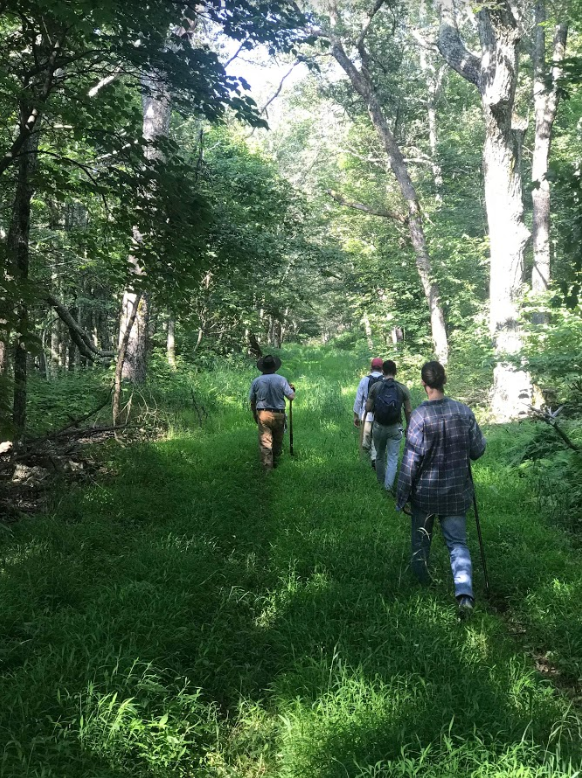
After that those of us on the hike came back down to the house and within an hour of returning we were met with a handful of community members from surrounding areas of Bath County. Some — like Gary and Jennette Robinson, and Lee and Linda Brauer — came from short distances like Little Valley, while others — like Ann Bryan and Barry Marshall — came from a few miles farther (Burnsville, and Williamsville). As folks continued to trickle in at their own pace, Ann Bryan performed a Peace and Harmony ceremony for everyone on the porch which included deep breathing, and long periods of meditation.

After the Peace and Harmony ceremony Sandy Hausman of NPR came by and interviewed a few of the surrounding county members to document stories around the pipeline in Bath County and this current encampment. I can’t describe to you how poignant some of these stories were and how important it is to come and witness and hear firsthand those who are impacted by this highly destructive and extractive infrastructure. It has not only deepened my understanding of why we are fighting Dominion and the fossil fuel industry but it was grounding to be in the presence and listen to such powerful narratives.


Once the interviews ended Sandy Hausman, Bill, Lynn, myself and a few campers did a big tree hike and viewed Miracle Ridge. Before Sandy and a few of the community members left, we all gathered around the No Pipeline Banner (hung across two trees as you arrive at the Limpert’s) and took a group photo. Once the crowd dispersed a few of us went our separate ways and gathered back on the porch later in the night as a few more campers trickled in from North Carolina and shared their stories as we ate food and conversed.
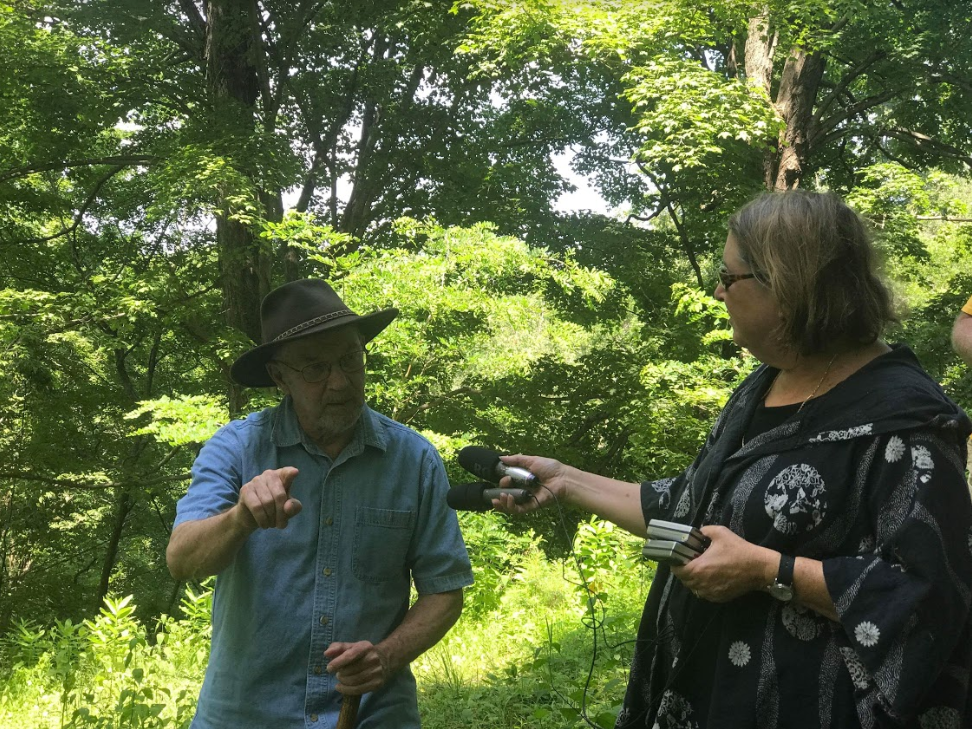

On Sunday, we had a pretty lax day as most campers began to pack up and leave in the morning. Before that though our Director Mike Tidwell and VA Organizer Jamshid Bakhtiari took campers over to Ona and gave them a chance to have their picture taken with the big trees.
I know this is only a small window into the emotive experiences shared this weekend, but It is my hope that you take some solace in these photos and stay in the loop with the encampment as it continues!
If you haven’t come out to camp yet, we’d love to have you! RSVP at this form today.
To campers who have come and still want to help there are many ways you can contribute! First and foremost, tell your friends about your experience, tell them to come out and arrange carpools to the encampment this summer.
Then, you can bring your experience back home and inspire others to have the same. Call or write a letter to Governor Northam and tell him about your experience here and how this pipeline is not needed and to take the necessary steps to stop it. Donate to Interfaith Action for Climate Justice online. Finally, if you have the time come and volunteer with us at the camp! If you felt moved to be here this summer and join the pipeline resistance in Bath County email me on how you would like to help here at the camp this summer!
Either way, I hope to see you out here again very soon!
A True Miracle: What it Means to Visit Miracle Ridge
By Nancy Hugo
I knew I was under-informed about Atlantic Coast Pipeline issues before I visited Miracle Ridge, but I didn’t know how much I was until last weekend.
That’s when I met Bill and Lynn Limpert, along with Sam Wright, who is helping the them organize “camptivists” visiting  their property.
their property.
“Come,” was the Limpert’s invitation, “just to see where the pipeline will go.” There was no demand for action, no requirement to report on the experience. But you can’t visit a place like that without wanting to do something to oppose the pipeline.
As a “tree person,” I expected it to be tree impressions that remained strongest in my memory after the visit. Those impressions are rich: beautiful sugar maples — including one old “hub” tree that probably pre-dates European settlement — are among those that would be destroyed by the pipeline.
But the strongest impression I came away with has more to do with terrain than trees. It’s the topography of Miracle Ridge — its steep sides, rocky substrate, and thin soil, that makes it seem uniquely vulnerable to disturbance.
 And what a disturbance this would be. Clearcutting an area 125 feet wide and blasting that would reduce this fragile area to rubble.
And what a disturbance this would be. Clearcutting an area 125 feet wide and blasting that would reduce this fragile area to rubble.
And for what? To transport natural gas that isn’t needed in Virginia to the coast for sale overseas? To support fracking (which we know to be environmentally catastrophic) in West Virginia? To destroy private land for the profit of Dominion Power?
Knowing that it is I (and every other Dominion ratepayer in Virginia) who will be paying for this vast, unnecessary destruction adds to the horror of it.
Today, in Ashland, I had lunch with a group of activists opposing the pipeline. In their company, I felt even more embarrassed by my ignorance, but, inspired by Sam and the Limperts, at least now I’m not totally unaware of what’s happening. And I’m determined to do what I can to oppose the pipeline.
Sign today up to join “No Pipeline Summer: A Camp to Save the Limperts’ Land.“
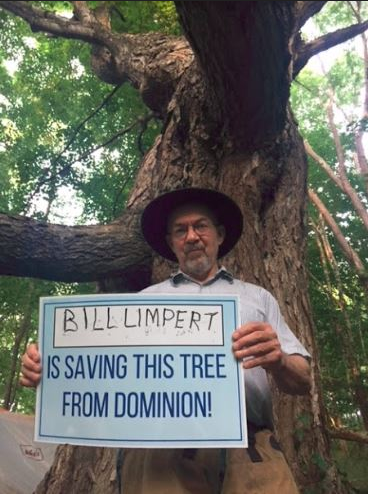
What CCAN Has Given Me
Written by Lauren Brown, CCAN 2018 Spring Intern
Since I’ve been a little kid, I’ve always been a nature lover. Many of my happiest and most memorable times growing up were when I was traversing, connecting with, and observing nature. As I have grown older, my feelings of love and responsibility for the Earth have become more clear and palpable. It was exciting to enter college and take on this responsibility in a new way. As an environmental politics & policy major at UMD, I was able to learn all about  environmental science, economics, law, and politics and share it with others.
environmental science, economics, law, and politics and share it with others.
I had some really amazing professors and mentors that helped support and empower me. Liz Lee from CCAN was one of those people.
Liz came to do a lobbying training at UMD and I was moved by her story of leaving her job as a government regulatory counsel to volunteer with CCAN, then join the staff at CCAN. She had experienced an awakening; that she wanted to do something more, for her legacy and for the world. She told me she wakes up every day and her purpose is clear.
We connected that night and I embarked on my journey as a CCAN intern.
As an advocate, one works in front of the scenes and behind the scenes. Everyone works as a unit. That’s how fracking bans are passed, people’s voices are heard, and miracles are made. It was a cool thing to be part of the team and to support each other. The main bill I worked on was the Clean Energy Jobs Act. This important bill will increase our renewable portfolio standard from 25 percent to 50 percent by 2030, providing thousands of new clean energy jobs. It also works to phase out incinerator incentives and provide support for minority, veteran and female-owned renewable energy businesses. I had lots of interesting tasks from setting up lobby appointments with legislators, making communications materials for constituents, leading lobbying training breakout groups, and tabling at student events. As I was a part of planning for crucial events to advance our bill, I felt fulfilled in that I could see the results of my hard work and the successful momentum we gained this legislative session.
The first event that I had the chance to participate in was the Clean Energy Jobs Act Rally in January. I felt immediately supported by over 150 volunteers and staff. There is something about just getting out there, being a part of something bigger than one’s self, and finding that strength in numbers.
This rally was especially striking because we had a parade of electric vehicles around the State Capitol. Each car was artfully decorated with campaign slogans, streamers, and hand-written signs. The parade was followed by speeches by impassioned community leaders and legislators; each so excited they were vying for time with the microphone. The location was just right and tons of government workers passed by; their attention sparked by all the activity. I made my goal in gathering petitions that day but I also made friends. I went home that day riding on the wings of hope. I felt joy in the camaraderie and meaning in the work we were doing.

Another event I helped with was a Clean Energy Jobs lobbying night in February in Annapolis. What a powerful swarming of our state legislators with CCAN and Maryland Climate Coalition volunteers! We had over 130 spirited, compassionate, knowledgeable frontrunners who were not afraid to speak their truth. This was especially exciting for me because I had never lobbied before. I was really touched by my delegates and senators from Montgomery County who wholeheartedly supported our bill and even participated in its creation. Gathering people together for lobbying is a good example of the steps we need to take to bring our state together, to spread pro-environmental inspiration, and to address climate change. I have also enjoyed educating the public and talking to regular citizen one-on-one about important issues. I am so grateful for having been part of CCAN and helping to contribute to this mission.
Although my spring internship ended, I have continued working with CCAN as a volunteer! It’s been fun tabling with other dedicated CCAN volunteers and interns this summer and helping out with the recent candidate forum in Charles County. It is exciting to see my impact in making the Clean Energy Jobs the priority environmental election issue for voters and candidates!

